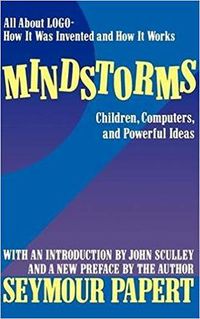No edit summary |
(→Links) |
||
| Line 46: | Line 46: | ||
Once again, there is PDF copy of the book and all articles in the group Zotero library. Contact [[Mako]] if you need one in some other way. The book is difficult and includes a bit of math and data. Don't try to start reading this the morning of. | Once again, there is PDF copy of the book and all articles in the group Zotero library. Contact [[Mako]] if you need one in some other way. The book is difficult and includes a bit of math and data. Don't try to start reading this the morning of. | ||
=== | === Other Related Pages === | ||
* [[Sociotechnocanonicon/2019 Planning]] | * [[Sociotechnocanonicon/2019 Planning]] | ||
Revision as of 00:10, 8 August 2019
The Sociotechnocanonicon Great Books Discussion Series allows members of the CDSC to build their familiarity with some of the classic works which are foundational in studies of online communities and peer production. The discussions are open to all, and facilitated by senior members of CDSC in order to introduce the broader context of the work. Meetings are held in person and aired over Jitsi for remote participation.
2019 Schedule
This schedule describes the summer 2019 reading plan for the Sociotechnocanonicon.
The reading group meets on https://meet.jit.si/sociotechnocanonicon every Tuesday, 11:30 - 1:00 PM Pacific time.
Mindstorms: Children, Computers, and Powerful Ideas

Mindstorms, Seymour Papert (The website has a link to downloadable PDF of the book as a single file.)
To try out the programming examples in the book, you can use an online version of Logo or download UCBLogo (available in Debian/Ubuntu/Arch Linux repositories). Note that the command to exit UCBLogo is bye.
- 2019-07-02 Week 1: Foreword, Introduction, Chapters 1-4 (pages vi-viii, 3-119)
- 2019-07-09 Week 2: Chapters 5-8, Epilogue (pages 120-207)
- 2019-07-16 Closing Week: Full work retrospective & follow-ups
Collection Action
The Logic of Collective Action
- Olson, M. (1965). The logic of collective action: Public goods and the theory of groups. Cambridge, MA: Harvard University Press.
There is a soft copy in the shared Zotero or you can ask in IRC to get access.
- 2019-07-23: Read the entire book. Nate is facilitating. Chapters 1 and 2 are super classic and the reason the book is cited as much as it is. I expect that much of our discussion will focus on the first part of the book, but feel free to bring up the other parts as well.
The Critical Mass in Collective Action
- Marwell, Gerald, and Pamela Oliver. 1993. The Critical Mass in Collective Action: A Micro-Social Theory. Cambridge, UK: Cambridge University Press.
- 2019-07-30 Week 1: Read Chapters 1-4 (pg 1-100) on "The critical mass and the problem of collective action"; "Building blocks: goods, groups, and processes"; "The paradox of group size"; and "The dynamics of production functions"
- 2019-08-06 Week 2: Read Chapter 5-8 (pg 101-193) on "Social networks: density, centralization, and cliques"; "Selectivity in social networks"; "Reach and selectivity as strategies of recruitment;" and "Unfinished business"
- 2019-08-13 Week 3: Applications to "our world" including [all available in Zotero]:
- Fulk, Janet, Andrew J. Flanagin, Michael E. Kalman, Peter R. Monge, and Timothy Ryan. 1996. “Connective and Communal Public Goods in Interactive Communication Systems.” Communication Theory 6 (1): 60–87. https://doi.org/10.1111/j.1468-2885.1996.tb00120.x
- Butler, Brian S. 2001. “Membership Size, Communication Activity, and Sustainability: A Resource-Based Model of Online Social Structures.” Information Systems Research 12 (4): 346–62. https://doi.org/10.1287/isre.12.4.346.9703
- Solomon, Jacob, and Rick Wash. 2014. “Critical Mass of What? Exploring Community Growth in WikiProjects.” In Proceedings of the Eighth International AAAI Conference on Weblogs and Social Media (ICWSM ’16). Palo Alto, CA: AAAI. http://www.aaai.org/ocs/index.php/ICWSM/ICWSM14/paper/view/8104
Once again, there is PDF copy of the book and all articles in the group Zotero library. Contact Mako if you need one in some other way. The book is difficult and includes a bit of math and data. Don't try to start reading this the morning of.
Other Related Pages
- Sociotechnocanonicon/2019 Planning
Sociotechnocanonicon/2019 Schedule[Temporarily redirects to this page]
Reading list themes
- Collective action
- Social movements
- Participatory-democracy
- Networks
- Sociomateriality
- Sociotechnical systems
- Cooperation
